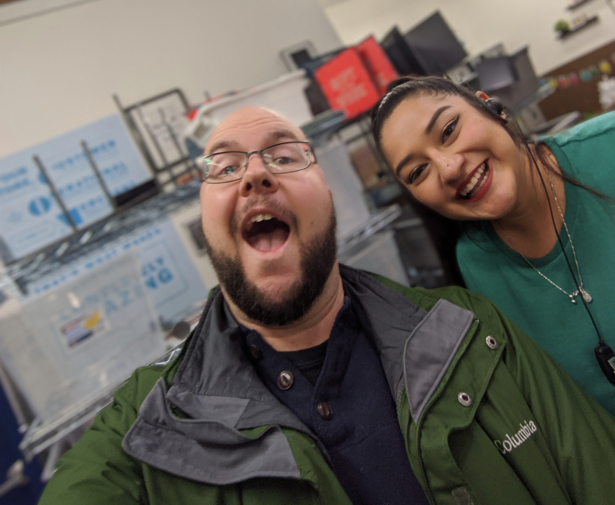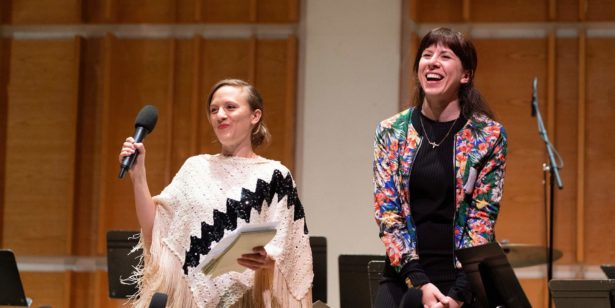
Getting Them To Graduation—And Beyond
A mentorship program provides support to those in need
Annalisa Ranaboldo is frank about what motivated her to start mentoring a high school student in the Bronx—but she’s also clear about how quickly that motivation changed. “I initially started doing it because I was thinking about applying to business school, to be totally transparent, and I had no extracurricular or charity work,” she says. “But now I’m really glad I did it. I’m not 100 percent sure I’m still applying to business school, I’m still figuring that out, but this has really just been a fulfilling experience in terms of feeling like you’re helping someone out.”
Ranaboldo works through a program called iMentor, which pairs high school students in need of support with adults who can help them reach their graduation day and go through the process of applying to colleges. Mentors are paired with freshmen or sophomores and make a three- to four-year commitment to the program. Mentors meet with their students once a month in person at their school, Ranaboldo says, and communicate online once a week, via iMentor’s platform.
Mentoring a high school student has been a new experience for Ranaboldo, who, at 25, graduated from high school not that long ago herself. One thing that drew her to the program, she said, was the difference in college acceptance rates between the schools iMentor works with and those without that benefit. “They really do make a huge difference in these schools, especially where most kids will be first generation college students,” Ranaboldo said.
“The first year is definitely the toughest. It’s a matter of perseverance and putting yourself in their shoes.”
While mentorship is provided initially at school and on the iMentor platform, it evolves to other settings once things get underway. “Once you’ve done three in-person visits at the school, you can also plan stuff with them outside of school, taking them to sporting events, college visits, things of that sort,” Ranaboldo told Good Turns recently. “The first year is definitely the toughest, because obviously these kids are 15 and have zero interest in seeing you or seeing what you have to say, so it’s a matter of perseverance and putting yourself in their shoes.” Ranaboldo tried for three months to make a weekend plan with her student, to no avail. “They won’t email you back or make a set plan.”
But, Ranaboldo says, it’s important to realize that the students in the program are under a different set of pressures and often have a very different experience of home life than many mentors. “I’m fortunate enough to come from a family where obviously you’re going to college, and it wasn’t an option,” she says. “On that front, I got lucky. I think it’s important to think about the different exposure [the program] gives you as someone who didn’t grow up in the environments they’re growing up in. My mentee ghosted me the first time I went to see her, and I went all the way to the Bronx and waited for an hour and she didn’t come. I spoke to her and said, ‘I didn’t see you.” She said, ‘Yeah, my mom didn’t want me to leave the house by myself because there are murders every week in my neighborhood.’ It gives you perspective, really, that you wouldn’t otherwise have. It really makes you more empathetic to people in different conditions.”
Any frustrations are more than balanced by the fulfillment of being able to lend a helping hand, Ranaboldo says: “In college you get to be all wrapped up in your college stuff. Then, especially your first year at work, you’re just settling into an adult life, and figuring out how to do your job. I think a good majority of my friends and colleagues got to a point in their second year of working where they’re like, okay, I want something else, not just grinding at work, going home, sleeping, eating, going out on weekends. I think a lot of people, when they hit 23 or 24, feel like they want to give back more than they currently are.”
Ranaboldo, at least, has found a way to give back. You too can lend a hand. If you’re in one of the cities iMentor serves, get in touch.
Photo courtesy of Flickr user COD Newsroom
Posted August 6, 2019





